5 Major Drug Shortages That Aren’t Getting Better
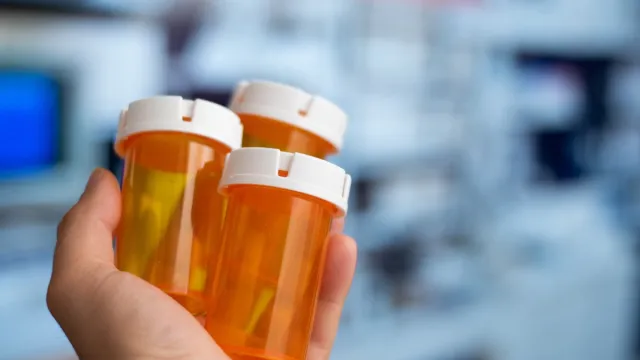
Modern medicine has made it far easier to treat any number of ailments—but that’s only if you can get your hands on these medications. Last year, ongoing and active drug shortages reached a record high for the decade, according to the American Society of Health-System Pharmacists (ASHP). As a result, Help Advisor’s analysis of U.S. Census Bureau data found that almost 31 million people in the nation experienced difficulty filling a prescription between Sept. and Oct. 2023 alone.
“Drug shortages are the highest we’ve seen in a decade, making it more and more difficult for patients and physicians across the country to get necessary medications,” Jack Resneck Jr., MD, board-certified dermatologist and health policy expert who served as a past president for the American Medical Association (AMA), said in a statement.
Erin Fox, PharmD, associate chief pharmacy officer at University of Utah Health, who helps provides information to the ASHP’s drug shortage database, told CNN in February that many common drugs used in hospitals have become hard to find over the past few years as well.
“It just doesn’t seem like there’s any light at the end of that tunnel,” Fox said. “Hopefully, by the middle of next year, we’ll start seeing some relief, but it’s [a] frustrating issue for sure.”
As of April 1, the ASHP’s database indicates that there are 263 current drug shortages in the country—some of which have been ongoing for quite some time now and are not showing any signs of letting up. Read on to discover which five major drug shortages will be with us for longer than we’d hoped.
RELATED: 4 Major Drug Shortages That Could Affect You in 2024.
1
Bicillin
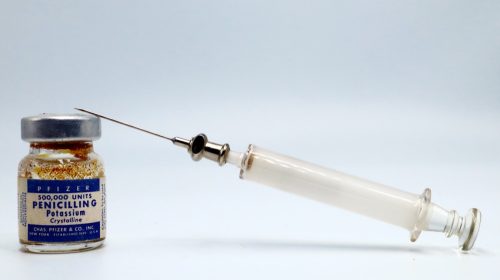
Bicillin (an antibiotic also known as penicillin G benzathine) is considered the “first-line recommended treatment for syphilis, and the only recommended treatment option for some patients,” according to the Centers for Disease Control and Prevention (CDC).
But this medication, which is solely manufactured by Pfizer Inc., has been in short supply since last year due to heightened demand amid an increase in syphilis rates nationwide.
Pfizer initially expected that supplies of Bicillin would normalize by the end of June 2024, Bloomberg reported. But a new update from the U.S. Food and Drug Administration (FDA) on March 21 revealed that estimated recovery from this shortage isn’t expected before the end of the year—and some doses may not be back in regular supply until spring 2025.
RELATED: It’s Not Just Adderall—These Medications Are Also Facing Shortages Now.
2
Rifampin
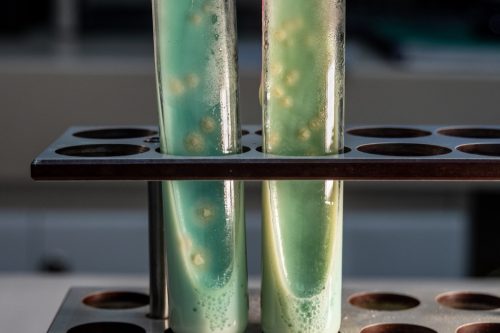
Rifampin has been considered to be in short supply by the FDA since Dec. 2021, according to a letter posted by the CDC. This antibiotic is commonly used to treat tuberculosis (TB), making it one of the several TB drugs that have faced shortages in the U.S. over the last few years.
3
Adderall
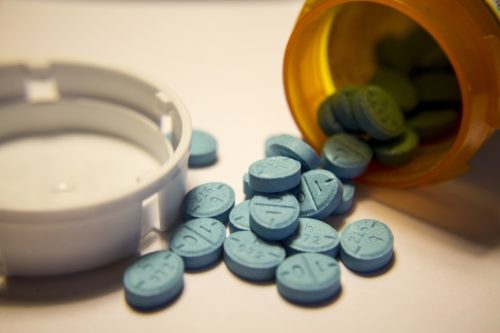
The FDA first announced a nationwide shortage of Adderall in Oct. 2022. But more than a year and a half later, the ADHD medication is still in short supply, with some manufacturers currently estimating that they won’t have certain doses of the immediate release formulation available until September of this year.
RELATED: 10 Common Drugs You Can Soon See “Huge Savings” on Under Medicare.
4
Vyvanse
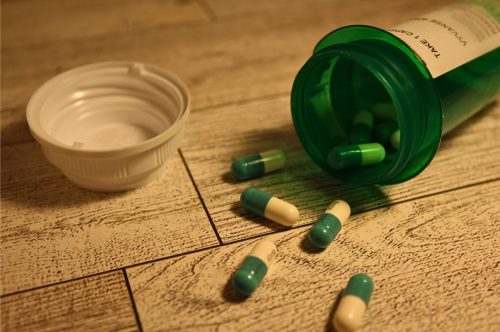
The ongoing Adderall shortage pushed some patients to switch to other ADHD medications, such as Vyvanse, the brand name for lisdexamfetamine.
But now, the ASHP indicates that several manufacturers are currently reporting a shortage of lisdexamfetamine capsules, too—and many of them say they can’t estimate when they’ll be able to release more Vyvanse supply.
5
Chemotherapy drugs
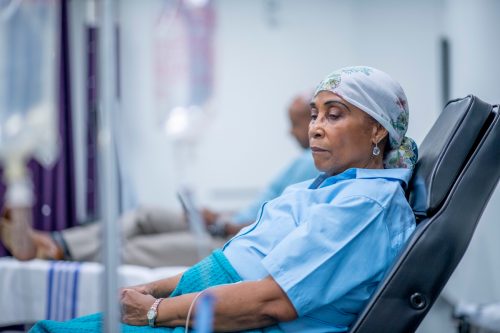
Several essential cancer medicines are facing shortages as well, including three commonly-used chemotherapy drugs: cisplatin, methotrexate, and carboplatin.
Cisplatin and methotrexate, which are used to treat a variety of cancers, were both affected by the late 2022 shutdown of a major production facility in India that failed to pass a surprise FDA safety inspection.
Those shortages led to an increased demand for alternatives like carboplatin, which caused a ripple effect and created a shortage for that chemotherapy drug, too.
“This is the most critical chemotherapy shortage I’ve ever seen, and this is, certainly, a public health emergency,” Angeles Alvarez Secord, MD, director of gynecologic oncology clinical trials at Duke Cancer Institute in Durham, North Carolina, said in a statement for a January report published in the Cancer Cytopathology journal.
Best Life offers the most up-to-date information from top experts, new research, and health agencies, but our content is not meant to be a substitute for professional guidance. When it comes to the medication you’re taking or any other health questions you have, always consult your healthcare provider directly.
- Source: ASHP: Drug Shortages Statistics
- Source: ASHP: Drug Shortages List
- Source: CDC: Syphilis
- Source: FDA: Bicillin Shortage
- Source: FDA Drug Shortages: Penicillin G Benzathine Injection
- Source: CDC: Tuberculosis Drug Supply Interruptions and Shortages
- Source: FDA Announces Shortage of Adderall
- Source: ASHP: Lisdexamfetamine Dimesylate Capsules